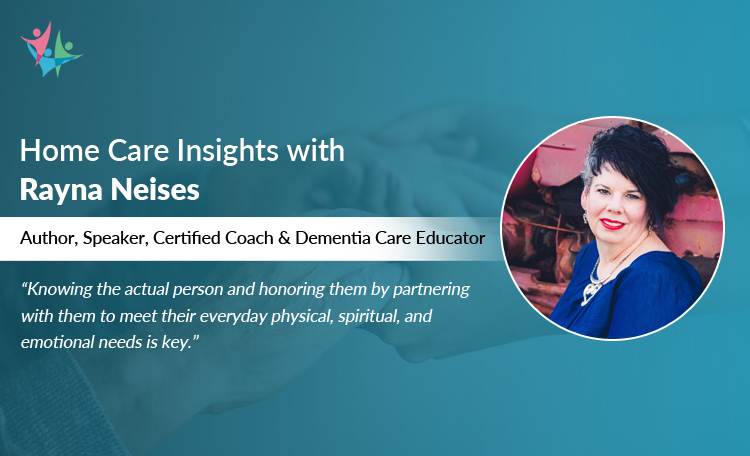Family caregiving for the elderly is a vital and compassionate role that involves providing physical, emotional, and practical support to aging family members. As individuals grow older, they often require assistance with daily activities, medical care, and companionship, which family caregivers willingly offer.
This form of caregiving is deeply rooted in love, devotion, and a strong sense of responsibility towards one’s elderly relatives. Family caregivers take on diverse responsibilities, such as administering medication, assisting with personal hygiene, coordinating medical appointments, and offering emotional support during challenging times. Their tireless efforts contribute to the well-being and quality of life of their loved ones, fostering a nurturing environment that promotes dignity, comfort, and the bond of family.
To shed some light on the same, we interviewed a home care industry expert to bring her perspective on family caregiving.

Rayna is a speaker, editor of a Content Magazine for family caregivers, and author of No Regrets: Hope for Your Caregiving Season. She’s a certified coach with the International Coach Federation, an independent Certified PAC Trainer, and hosts A Season of Caring Podcast.
She’s the most passionate about offering encouragement, resources, and support for regret-free caring.
Let’s get started with knowing what our expert thinks of the home care industry:
When hiring caregivers to support you and your loved one, the most important thing is to be very specific, and take the time to have written expectations. We are all different; how I cook dinner, get ready for the day, or do the laundry will be different from how I do it. For some tasks, it was the final product that was important, clean clothes, while some tasks should be all about the person you are caring for.
Our goal as a family was to support my dad, who lived with Alzheimer’s for 14 years, in doing things the way he did when he could do them for himself. We had very detailed notes on my dad’s morning and night routines, the types of foods he liked, how he liked them served, and what he liked to do with his time.
We provided checklists and asked for feedback on how the day went. These tools and specific expectations allowed us to find caregivers who could provide the support we needed and the care we expected.
When caregivers keep Teepa Snow’s mantra of doing “with” not “to” in mind, dignity will always be present, it is key to know the actual person and honor them by partnering with them to meet their everyday physical, spiritual, and emotional needs.
The key word to me was intentional. I was blessed to care for my dad in his home 220 miles from my home 3 days per week for over 2.5 years. I had to decide what my top priorities were and choose to live by them.
I wrote a manifesto to keep me focused on important things in my life and avoid distractions. You can’t do everything. It will help to let go of some things for a season, but you can always return to them when the season passes. You do not have to do it all. Ask for help, pay for help; you need it. What you do is hard, but you can love them and your life.
The most important thing you can do for your parents is to be involved. Even if you are not doing hands-on care, you should know how things are going and be a sounding board for the primary decision-makers. Develop systems to have the caregivers share how things are going regularly. You will get general upbeat answers if you communicate only occasionally.
Regularly checking in and giving positive feedback to the caregivers taking care of your parents can improve your relationship with them and enhance communication.
Remember, you are the only one who can be their child, you might have siblings, but no one can replace you and your love. Provide emotional support and visit your parents as much as you can. Please make the most of the time you have with your parents and those who are supporting them. Investing in your relationship with them is crucial as they won’t be with you forever.
My number one advice is to not get sucked into caregiving rather make intentional choices in the activities you take on to support your loved ones. The needs will increase with time, so look for help out of the gate. It is easier to step into something later than it is to step out once you have been doing it. Also, getting help out of the gate will set a realistic expectation for you and your parents.
You cannot do everything; you can’t expect yourself to and neither should they.
Family caregiving for the elderly is crucial in our society, ensuring that aging adults receive the care and support they need. The dedication and selflessness of family caregivers create a nurturing environment that promotes the well-being and dignity of their loved ones.
Their efforts not only enhance the quality of life for the elderly but also strengthen the bonds within the family. It is a testament to the enduring power of love and compassion in providing comfort and assistance during aging.
Our users reported 95% customer satisfaction in 2024. Schedule a personal walkthrough to see CareSmartz360, home care software in action.